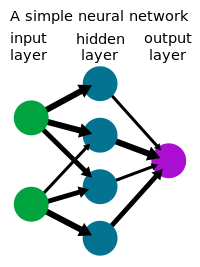
Photo from wikipedia
Diabetes is a major chronic health problem affecting millions globally. Effective diabetes management can reduce the risk of hospital readmission and the associated financial losses for both the healthcare system… Click to show full abstract
Diabetes is a major chronic health problem affecting millions globally. Effective diabetes management can reduce the risk of hospital readmission and the associated financial losses for both the healthcare system and insurance companies. Hospital readmission is a high-priority healthcare quality measure that reflects the inadequacies in the healthcare system that also increase healthcare costs and negatively influence hospitals’ reputation. Predicting readmissions in the early stages prompts great attention to patients with a high risk of readmission. There has been some attempt in applying machine learning predictive models such as ensemble learning with Extreme Gradient Boosting (XGBoost), Support Vector Machine (SVM) and Artificial Neural Networks (ANN) to correctly identify if the readmission can happen within 30 days (< 30 days) or it may never happen or happens after 30 days ( $\ge 30$ days). We are proposing a new method that is applied to ANN to guide it through its gradient descent optimizers by realizing consistent vs inconsistent data in every batch. Our results show that there are up to 1.5% improvement in classification accuracies in both 2-class and 3-class variations of the experimented benchmark dataset when using the guided optimizer to train the ANN as opposed to the standard optimizer. Guided ANN is also able to achieve better error convergence than standard ANN.
Journal Title: IEEE Access
Year Published: 2023
Link to full text (if available)
Share on Social Media: Sign Up to like & get
recommendations!